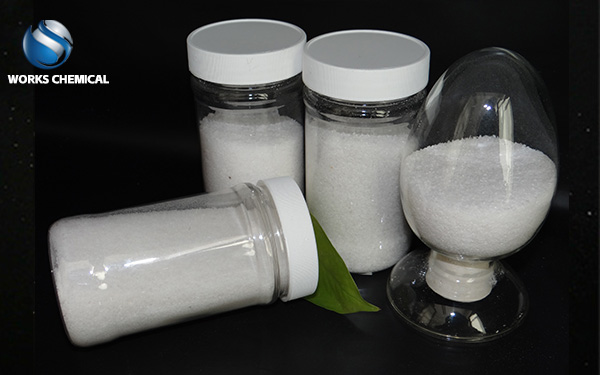
Sludge dehydrant is a chemical agent used to reduce the moisture content of sludge, and its role is to separate the water in the sludge from the solid, so that the sludge becomes drier. The following are several main sludge dewatering agents and their characteristics:

Works Chemical- Sludge conditioner, sludge dewatering synergist manufacturer
1. Polyacrylamide (PAM) : PAM is a water-soluble polymer, with excellent flocculation and condensation properties, widely used in sewage, sludge treatment and other fields. PAM can react with suspended particles in sewage through hydrogen bonding, so that they gather together to form a larger flocculent, so that it is easy to settle and separate. The advantages of PAM include high efficiency, fast, safe, non-toxic, etc., but its price is relatively high.
2. Polyaluminum chloride (PAC) : PAC is an inorganic polymer with a wide range of coagulant effects and can be used for sewage and sludge treatment. PAC can gather suspended particles in sewage through adsorption and condensation to form a larger flocculent, which is easy to settle and separate. The price of PAC is relatively low, but its use is large and requires a higher dosage.
3. Polyferric sulfate (PFs) : PFs is an efficient and low-cost sludge dehydrating agent with a wide range of coagulant effects. PFs can gather suspended particles in sewage through adsorption and condensation to form a large flocculent, which is easy to settle and separate. The amount of PFs used is relatively small, but it can cause corrosion to equipment.
4. Biological enzyme preparation: Biological enzyme preparation is a new type of sludge dehydrating agent, its role is to decompose the organic matter in the sludge through the enzyme, so that it becomes drier. Bioenzyme preparation has the advantages of high efficiency, environmental protection and safety, but its price is relatively high.
5. Organic polymer: organic polymer is an efficient sludge dehydrating agent, its role is to gather suspended particles in sewage through adsorption and condensation, forming a larger flocculent, so that it is easy to settle and separate. Organic polymer has the advantages of high efficiency, speed and safety, but its price is relatively high.
In summary, the main sludge dehydrating agents to reduce the moisture content of sludge are polyacrylamide (PAM), polyaluminum chloride (PAC), polyferric sulfate (PFs), biological enzyme preparations and organic polymer. Different sludge dehydrating agents have different characteristics and effects, and the appropriate dehydrating agent should be selected according to the actual situation.